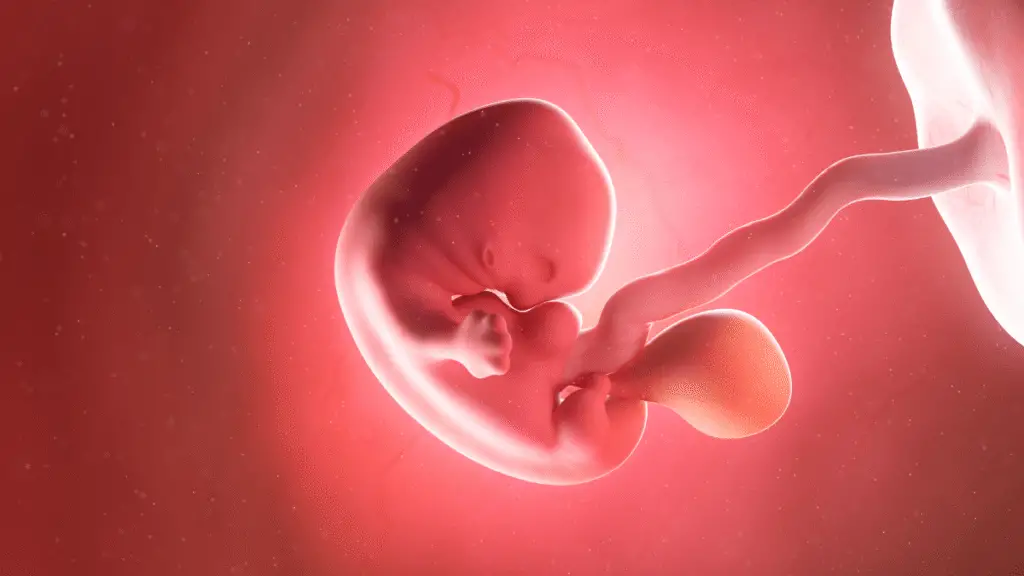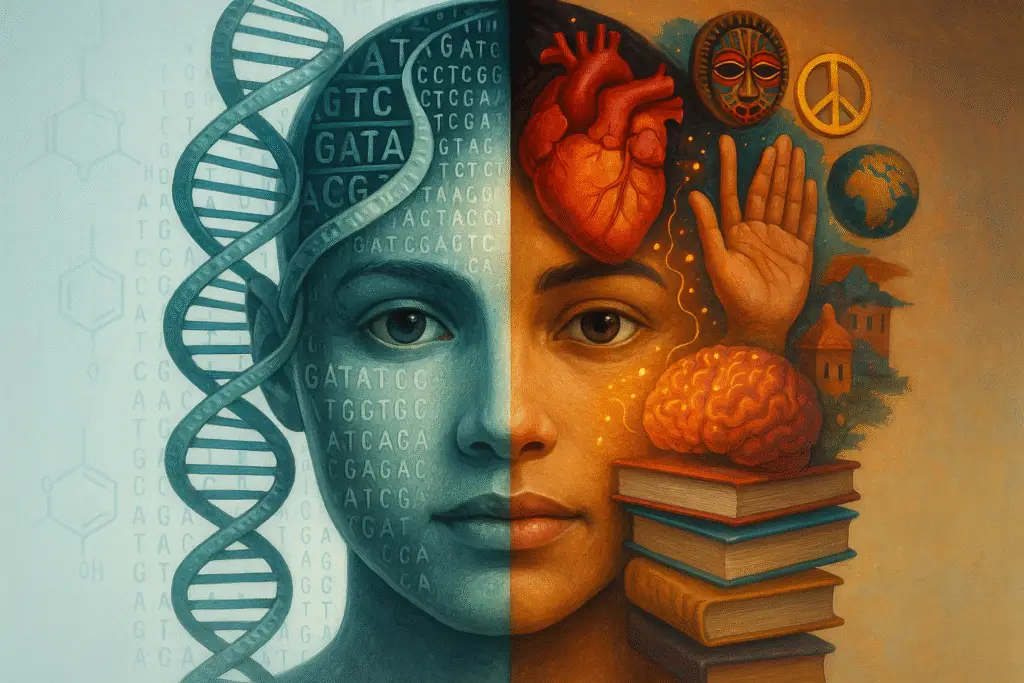A mother is always advised to be careful during her pregnancy – avoiding certain foods, taking prenatal vitamins, and following medical advice closely to ensure the healthy development of her baby.
But beyond general health and well-being, have we ever had a thought that the baby’s DNA could also be at stake?
It is believed that a mother’s habits and lifestyle affect the birthweight and immunity of the baby, that’s what we hear our mothers and grandmothers advise us all the time, and they are correct.
The emerging research also shows that a mother’s lifestyle habits, such as smoking, maternal alcohol drinking, use of antibiotics and excessive caffeine, and exposure to harmful chemicals, can have long-lasting effects on the baby’s gene expression, DNA stability and epigenetic mechanisms, resulting in long-term health risks for the baby.
The beginning of embryonic development is a period of high DNA synthetic rate and dynamic epigenetic reprogramming. This period appears to be particularly vulnerable to the effects of environmental factors and disruption of these processes can have long-term effects on development.
In this article, we are going to explore 5 such habits of a mother that can leave a negative impact on the DNA of the developing fetus, supported by recent studies.
Key Topics:
Smoking
We all know the hazardous effects smoking has on our health at both the cellular and genetic levels. We are all aware of the consequences we might have to face in the future.
But a fetus that is not even born yet? What if I tell you that a mother smoking during her pregnancy could unknowingly damage the baby’s DNA? Yes, that’s true and even scientifically proven.
Studies have shown that there are more than 4,000 chemicals in cigarette smoke, including benzo(a)pyrene, nicotine, and carbon monoxide, and more than 40 of these chemicals are known carcinogens. Nicotine crosses the placenta, and fetal concentrations of nicotine can be 15% higher than maternal concentrations.
A study published by Cambridge University Press explores how maternal smoking and even passive maternal smoking can be fatal for the baby’s long-term health.
Maternal cigarette smoking during pregnancy is associated with increased risk for spontaneous abortion, preterm delivery, respiratory disease, immune system difficulties such as asthma and allergies, disrupted DNA methylation, changes in microRNA expression and cancer later in life.
Cigarette smoking during pregnancy can lead to aberrant DNA methylation patterns in the placenta. DNA methylation is a mechanism that changes gene expression without altering the DNA sequence.
This epigenetic alteration influences birth weight and fetal gene regulation and has lasting effects on the epigenome of the child, thereby increasing the vulnerability to health issues later in life.
Antibiotics
Excessive ingestion of antibiotics messes with our gut microbiome. And our gut microbiome is responsible for the healthy functioning of many genes. The reason is, our gut microbes and genetics are linked.
But does taking antibiotics while being pregnant also harm the baby? Antibiotic use during pregnancy can affect the microbial ecology of the offspring.
According to a study in the International Journal of Obesity, antibiotics that are commonly prescribed during pregnancy may influence fetal development at the epigenetic level.
The exposure of antibiotics at this early stage to the fetus can lead to changes in gene expression, particularly DNA methylation.
The study investigated the effects of antibiotic exposure on DNA methylation at DMRs (differentially methylated regions) of the genes involved in fetal growth.
It has resulted in 1% increase in the methylation of one of these genes that corresponded to a 10g decrease in the birth weight of the baby.
Alcohol
Consumption of alcohol during pregnancy can be harmful to both the mother and the fetus.
Maternal alcohol consumption during pregnancy is a leading cause of non-genetic intellectual disability and birth defects in the Western world. It can produce fetal alcohol spectrum disorders (FASD), which is an umbrella term for all alcohol-related neurodevelopmental disorders and birth defects.
Maternal drinking can also damage the DNA of the fetus. Heidi Marjonen and co-workers in their recent study showed that early gestational exposure to alcohol can result in epigenetic reprogramming in the embryo, affecting gene regulation.
Using a mouse model, researchers found that ethanol exposure altered DNA methylation patterns and silenced critical genes; these changes can lead to growth restriction, craniofacial defects, and even altered memory function.
Excessive caffeine use
In today’s fast-paced world, caffeine has become a staple to kick-start the day. Be it drinking a hot cup of coffee or having a cola with your pizza, caffeine has embedded itself into the modern lifestyle. And for many, especially expecting mothers, leaving this habit becomes nearly impossible.
Excessive caffeine intake during pregnancy can come with serious consequences. The developing baby lacks the enzyme required to metabolize caffeine effectively. Meaning that every sip a mother takes could be silently influencing the genetic health of her child.
According to a study on maternal caffeine consumption during pregnancy, overconsumption of caffeine and caffeinated drinks can influence fetal development through subtle changes in DNA methylation, impacting long-term health by altering the baby’s epigenome.
Another research published in the biomedicine journal suggests that caffeine has known biological effects on cell proliferation, DNA repair, and oxidative stress and can result in childhood leukemia.
High levels of caffeine intake may disrupt normal fetal development by inducing DNA damage or impairing immune system maturation, which are critical processes in preventing malignancies like leukemia.
Additionally, genetic polymorphisms affecting caffeine metabolism may modulate individual susceptibility. For example, slow caffeine metabolizers may experience prolonged exposure to caffeine’s metabolites, potentially amplifying its adverse effects on fetal development.
Exposure to toxic chemicals (like BPA & phthalates)
Expectant mothers are unknowingly exposed to harmful chemicals like Bisphenol A (BPA) and phthalates in their daily routine activities. These chemicals are commonly found in plastic containers, packaged food, cosmetics, perfumes and non-stick cookware.
Heating food in plastic, drinking from plastic water bottles, or using fragranced lotions may seem harmless, but once inside the body, they can interfere with many genetic mechanisms.
Research published in BMC Clinical Epigenetics, BPA and phthalates are endocrine-disrupting chemicals that can cross the placenta and interfere with the baby’s biology right from the womb.
Again, they impact the DNA methylation. The study showed that fetal exposure to these chemicals is linked to differential DNA methylation patterns at birth, especially in genes like IGF2, which plays a key role in growth and metabolism.
You can also check out our articles on cooking habits and skincare products that can be harmful to our DNA.
Long story short,
Everything a mother does in her pregnancy has a direct or indirect impact on the baby, be it her lifestyle choices like using cosmetics, or her addictions like smoking, alcohol and many others that are not even discussed here.
Each of these habits can leave a scar on a baby’s DNA. So a mother should always be careful with her choices in order to ensure the good genetic health of the developing baby.
Wrapping up :
Pregnancy is not just about giving birth and bringing a new life into the world. It is also a very critical time where a mother’s habits and lifestyle can shape her child’s lifelong health at the biological level- the DNA.
As we discussed, habits like alcohol, maternal smoking, excessive use of caffeine, use of antibiotics and exposure to harmful chemicals can influence the epigenetic structure of the fetus.
And it is causing changes such as gene silencing, DNA methylation, or altered gene expression, affecting everything from birth weight and brain development to future risks of allergies, chronic diseases, and metabolic disorders.
All this implies that maternal care is not just what is visible on the outside, but it’s about protecting and nurturing what’s happening on a molecular level inside the womb.
Works Cited
Dube, Rajani, et al. “The Fetal Effect of Maternal Caffeine Consumption during Pregnancy—a Review.” Biomedicines, vol. 13, no. 2, 6 Feb. 2025, pp. 390–390, https://doi.org/10.3390/biomedicines13020390.
—. “The Fetal Effect of Maternal Caffeine Consumption during Pregnancy—a Review.” Biomedicines, vol. 13, no. 2, 6 Feb. 2025, pp. 390–390, https://doi.org/10.3390/biomedicines13020390.
Knopik, Valerie S., et al. “The Epigenetics of Maternal Cigarette Smoking during Pregnancy and Effects on Child Development.” Development and Psychopathology, vol. 24, no. 4, 15 Oct. 2012, pp. 1377–1390, www.ncbi.nlm.nih.gov/pmc/articles/PMC3581096/, https://doi.org/10.1017/s0954579412000776.
Marjonen, Heidi, et al. “Early Maternal Alcohol Consumption Alters Hippocampal DNA Methylation, Gene Expression and Volume in a Mouse Model.” PLOS ONE, vol. 10, no. 5, 13 May 2015, p. e0124931, https://doi.org/10.1371/journal.pone.0124931. Accessed 16 July 2020.
Qu, Wenhao, et al. “Exposure to Antibiotics during Pregnancy Alters Offspring Outcomes.” Expert Opinion on Drug Metabolism & Toxicology, vol. 17, no. 10, 6 Sept. 2021, pp. 1165–1174, https://doi.org/10.1080/17425255.2021.1974000.
Rohweder, Ricardo, et al. “Caffeine Intake during Pregnancy and Adverse Outcomes: An Integrative Review.” Reproductive Toxicology, vol. 123, 1 Jan. 2024, p. 108518, www.sciencedirect.com/science/article/abs/pii/S0890623823001922?via%3Dihub, https://doi.org/10.1016/j.reprotox.2023.108518.
Schellhas, Laura, et al. “Maternal Caffeine Consumption during Pregnancy and Offspring Cord Blood DNA Methylation: An Epigenome-Wide Association Study Meta-Analysis.” Epigenomics, vol. 15, no. 22, 1 Nov. 2023, pp. 1179–1193, pubmed.ncbi.nlm.nih.gov/38018434/, https://doi.org/10.2217/epi-2023-0263.
Sol, Chalana M, et al. “Fetal Exposure to Phthalates and Bisphenols and DNA Methylation at Birth: The Generation R Study.” Clinical Epigenetics, vol. 14, no. 1, 10 Oct. 2022, https://doi.org/10.1186/s13148-022-01345-0. Accessed 12 Apr. 2024.


